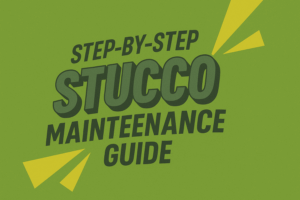How to Sell an Inherited House in Florida
If you’re selling an inherited house in Florida, you may be balancing the titling scales of emotions, money, and time. You’re likely eager to get sales agreements signed and move things forward as quickly as possible.
“Don’t sign anything until the judge signs off,” advises Amy B. Van Fossen, a Florida estate planning attorney with more than 20 years of experience. “Usually, it’s called an Order to Determine Homestead Status, which legally puts that ownership of the house into the kids’ [or other relatives’] names. Then you’re free to do whatever you want at that point.”
In this post, we’ll provide real-world insights on how to sell an inherited house in Florida. We’ll suggest clear steps and straightforward tips to help you decide which selling path is best for you.
Editor’s note: This post is for educational purposes. If you need assistance navigating the legalities or tax implications of selling an inherited home in Florida, HomeLight encourages you to consult a professional advisor.
1. Confirm where the mortgage stands
As the new owner of the house, it’s essential to fully understand the status of the mortgage. You need to know the outstanding balance, monthly payments, interest rate, and other existing loan terms.
You’ll also need to surface any other liens or judgments attached to the property, such as unpaid taxes, a home equity line of credit, or a reverse mortgage. A title search will help determine what you need to address, and your next steps.
“Your real estate agent will likely order a title search immediately using their favorite title company,” explains Thomas Taranto, a top Florida real estate agent who works with 83% more single-family homes than the average agent in his Melbourne market. “The seller can choose the title agent; however, Realtors often have a lot more experience with title companies and know which ones are great at handling different situations.”
Taranto adds, “If there is any question whatsoever about if the title was properly conveyed to the heir, you should definitely get with an estate planning attorney.”
These experts can assist with legal requirements and filing procedures in Florida.
2. Anticipate your ownership timeline
Even if you know you’ll inherit the home, it may take some time before you legally own the property. Your ownership timeline depends on how you inherited the house, whether through a probate inheritance, living trust, or a transfer on death deed, also referred to as a beneficiary deed.
You’ll take ownership more swiftly if you’ve inherited the property through a living trust or life estate deed because no court approval is required. This allows you to sell the property immediately or at a time that fits your objectives.
“If an estate plan is in place, the next steps are much easier and usually less expensive,” Taranto says.
Probate inheritance, on the other hand, is far more complicated. It’s a judicial process that can take anywhere from a few months to a year or more, depending on the complexity of the estate.
“Should a probate need to be performed, that time might be well used to clean out the property and do repairs to get it ready to list and sell,” Taranto suggests.
“But if an estate plan is not in place, an attorney needs to be consulted prior to listing the home for sale,” he cautions. “You would not want to sign listing paperwork and market a property before it’s confirmed who the new rightful owner is and that they legally have the right to list and sell the property.”
If you list too early before confirming ownership, Van Fossen says your attempt to move things along may actually stall or cancel a potential sale.
“Whenever you sign things early, what happens is — if you get a buyer — then the buyer gets frustrated because it might take weeks or months for all the legal stuff to get ironed out, and then the buyer may back out.”







